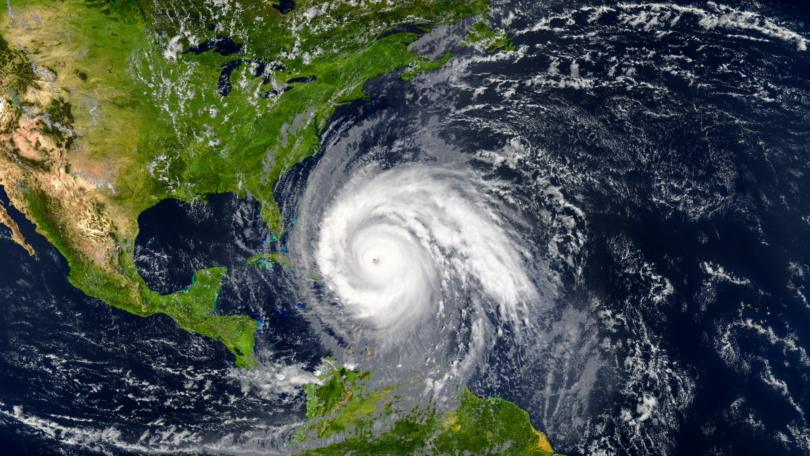Tips and research from Nextdoor on neighborhood safety during a natural disaster
When a disaster strikes, it’s often your neighbors who serve as your first line of defense. A study in the International Journal of Disaster Risk Reduction following Hurricane Harvey found that users of Nextdoor were 54% more likely to indicate their neighbors were helpful compared to those who had never used the platform.
Ensuring you have a neighborhood to rely on is crucial before, during, and after a hurricane. Here are some ways you can turn to Nextdoor to build a resilient support system within your local community for hurricane season and beyond.
How to prepare before a hurricane
- Make a plan for your household, and don’t forget to include pets.
- Ensure your hurricane kit includes a minimum 14-day supply of non-perishable food and drinking water (1 gallon per person, per day, as flooding often results in contamination) for all family members and pets, as well as a 2-week supply of medications for everyone in your household.
- Regularly check Nextdoor to find important safety information directly from local public agencies, including upcoming emergency alerts.
- Fill your gas tank should you need to evacuate, and keep your mobile phones charged so you can receive weather alerts
- Fill your bathtubs with water to use for flushing the toilet.
- Bring lawn furniture, planters, garbage cans, and anything that could become a projectile inside; they will become dangerous in high winds. Clear gutters and storm drain on your property and your street.
- Put up your hurricane shutters when a Hurricane Watch is issued or 36 hours from expected landfall.
- Write down the name and phone number of your insurer and insurance professional, and keep this information in your wallet or purse – or take a picture with your mobile phone.
- Ensure your pet has its name and your cell phone number written on its collar or tag.
- Take photos of your important documents and videos of your belongings and home (inside and out) and upload them to the cloud, so you have a record of items if they get damaged or destroyed. Be sure to use two-factor authentication to protect your privacy.
If you need help preparing or wish to lend a hand, let your neighbors know by posting to Nextdoor. Select “Your neighborhood” or “Nearby neighborhoods” to reach the neighbors closest to you.
How to stay safe during hurricane conditions
- Always listen to local officials. If you’re in danger or need emergency services, call 911.
- If you’re told to evacuate, do so immediately! If you stay, you will risk your and first responders’ lives.
- Post to Nextdoor to share real-time updates about your neighborhood evacuation orders, flooding, and storm damage.
- Stay put. If you must leave, be aware of quickly moving water and flooded roads as the storm approaches. Do not drive around barricades or through high water.
- The safest place to stay in your home is an interior room with no windows. Stay away from all windows and exterior doors. Go to the highest level of the building if you are trapped by flooding. Do not climb into a closed attic. You may become trapped by rising flood water.
- Keep in mind that sending text messages to family and loved ones is usually more reliable and faster than making phone calls because phone lines are often overloaded.
- If the power goes out, keep freezers and fridges closed as much as possible to retain the cold and switch off electronics to avoid damage from surges.
- If you use a portable generator, never use it in an attached garage, even with an open garage door. Use it outdoors in well-ventilated areas at least 20 feet from all doors, windows, and vent openings, with the exhaust facing away from the building.
- If your home or neighborhood becomes flooded, you will likely be advised to boil or disinfect water. You must do so as water may be contaminated.
- It’s common to feel overwhelmed, anxious, isolated, or in other distress when severe weather is forecast. You’re not alone: The National Disaster Distressline 1-800-985-5990 offers 24/7 confidential, multilingual emotional support.
If you need a ride to evacuate or have space in your vehicle for others, let your neighbors know by posting to Nextdoor. Select “Your neighborhood” or “Nearby neighborhoods” to reach the neighbors closest to you.
How to recover after a hurricane
- If you’ve evacuated, only return home when local officials say it is safe.
- If you’re not home, post to Nextdoor to ask your neighbors to take and send you photos of your home so you can submit your insurance claim.
- Remain safe after the storm by avoiding floodwater, wet electrical devices, and damaged buildings until local authorities determine it is safe.
- If your home or property was damaged, visit DisasterAssistance.gov to see if you qualify for financial assistance.
- Post to Nextdoor to share about stores that have supplies, gas, and other goods.
- Save phone calls for emergencies. Phone systems often are down or busy after a disaster. Use text messages or social media to communicate with family and friends.
- Engage in neighborhood-level coordinated recovery efforts to help with debris removal and more.
- Support local organizations on the frontlines by volunteering or donating.
- Take care of your emotional health and know when and how to seek help. Coping with strong emotions as a unified neighborhood can help you recuperate after a disaster.
- Be sure to thank first responders who risk their lives to keep us safe.
If you need help cleaning up, or want to offer your help, let your neighbors know by posting to Nextdoor. Select “Your neighborhood” or “Nearby neighborhoods” to reach the neighbors closest to you.
Remember that you may also need to adjust your hurricane plans based on the CDC’s latest health and safety guidelines and your local officials to protect yourself and others from COVID-19.
Our thoughts are with those impacted by this year’s hurricane season. Visit FEMA’s Ready.gov and the National Hurricane Center’s website at hurricanes.gov throughout the season to stay current on watches and warnings.
To connect with your local neighborhood, please login at nextdoor.com.

